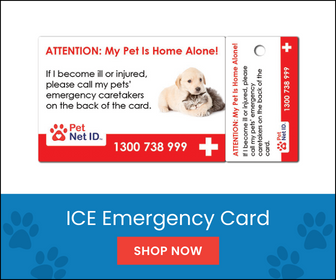
Anxiety or Irritability in Dogs – Related Illnesses
If your pet is experiencing anxiety or irritability, there are numerous possible health problems which can bring on anxiety or irritability in dogs.
Anxiety or Irritability in dogs can trigger notable changes in your canine’s health as well as attitude.
Knowing the anxiety or irritability in dogs is the first measure in protecting your pet dog’s health and wellness.
We have actually provided a few of the usual diseases in pets when they are enduring with anxiety or irritability. Please click on the web links of illnesses below for more information.
| Dog Illnesses & Health Conditions |
|---|
| Stomach Ulcers in Dogs |

Understanding Signs And Symptoms Including Anxiety or Irritability in Dogs
Monitor your canine’s everyday activity – Always keep a journal of when your pet dog relieves himeself or herself, whenever his or her symptoms take place, when he eats and drinks, and so forth.
This helps to establish a pattern to the signs and symptoms. It can additionally be a very helpful resource for the vet to identify your dog’s sickness.
If your canine is slightly unwell (not eating the best for a day, troubled, throwing up one or two times, a bout of diarrhea) you can very carefully observe your pet at home as well as phone your veterinarian for recommendations.
Look for prompt veterinary attention with particular symptoms – There are numerous extreme symptoms that call for urgent medical treatment. Never wait on these symptoms and call your vet as soon as possible:
- Known consumption of a hazardous material.
- Unconsciousness.
- Unrelenting vomiting and also looseness of the bowels.
- Respiratory difficulties.
- Profuse bleeding.
- Seizures that do not stop within one min.
- New or recurring symptoms in a canine with a health problem (diabetes, Addison’s disease, etc).
- Unable to pee or not producing urine.
- Big swellings around the face, eyes or throat.
- Fractured bones.
Get suggestions from your veterinarian on much less extreme symptoms – Some symptoms of health problem in dogs can be uncomfortable for dog as well as might show health conditions that require to be treated. Call your vet to obtain advice on dealing with the following symptoms:
- Occasional throwing up and also looseness of the bowels lasting a lot longer than 24 hours.
- Infrequent seizure that lasts no more than one min.
- Sleepiness lasting for a longer period than eventually.
- High temperature.
- Lumps or bumps that suddenly appear or recent ones that grow.
- Not taking food for more than one day.
- Hopping or acting painful.
- Problem excreting.
- Excessive drinking.
- Swelling that surfaces progressively.
- Most other odd signs and symptom or behavior (shivering or weeping).
Observe your pet’s attitude – A dog parent can tell a good deal by paying attention to the dog’s behavior including how he or she is actually feeling. You’ll need to see to it his wellness is progressively starting to improve as well as responding to treatment. For example, your animal should start to wag his or her tail, pay attention to you as well as get up to greet you.
If he or she perks up and also begins wanting food, then it is fantastic signal to indicate he or she is pulling through.
Instead, if you recognize your dog is turning into much less interactive or simply lying still, he or she might possibly be becoming worse and need medical aid.
Monitor your pet’s breathing – It is better to watch the breathing pattern of your pet and this can reveal to you tell you a good deal about just how your pet dog feeling. If your dog is in pain or dealing with some kind sickness, he/she breathe heavily or pant.
In the majority of scenarios, coughing and heavy breathing are signs of a chest infection. You need to additionally keep an eye on your pet dog’s gum tissues if his/her breathing creates huge chest movements.
The gums in your canine’ mouth must be pink and healthy and balanced. If the gums look tinged blue or pale, call the vet. Your pet might not be getting sufficient oxygen and could be in respiratory distress.
You can also maintain an hourly record of your canine’s breathing. Generally your pet take around 20 to 30 breaths per minute. If your pet dog’s breathing rate surges steadily, his or her health condition has deteriorated and you have to call the veterinarian.





